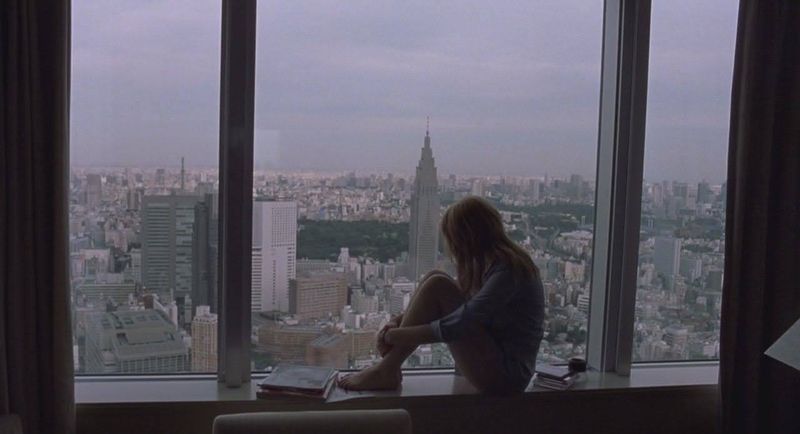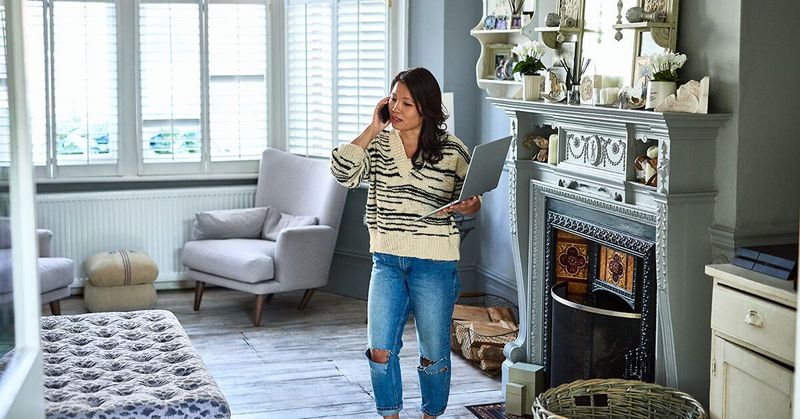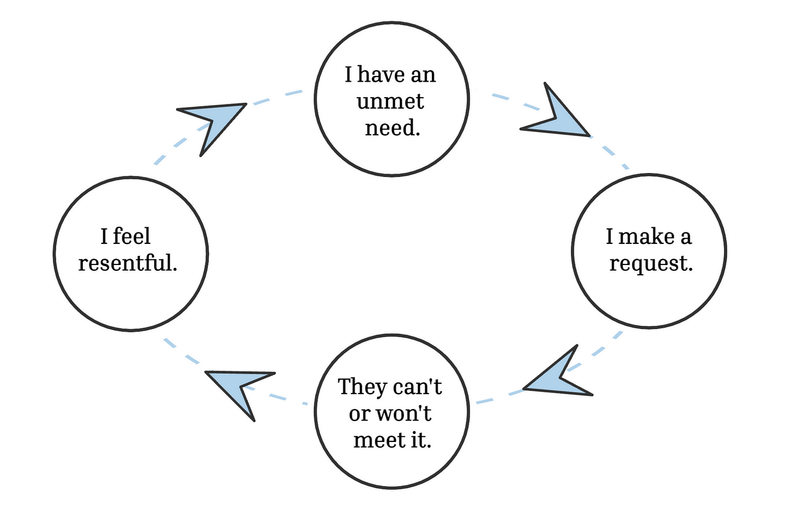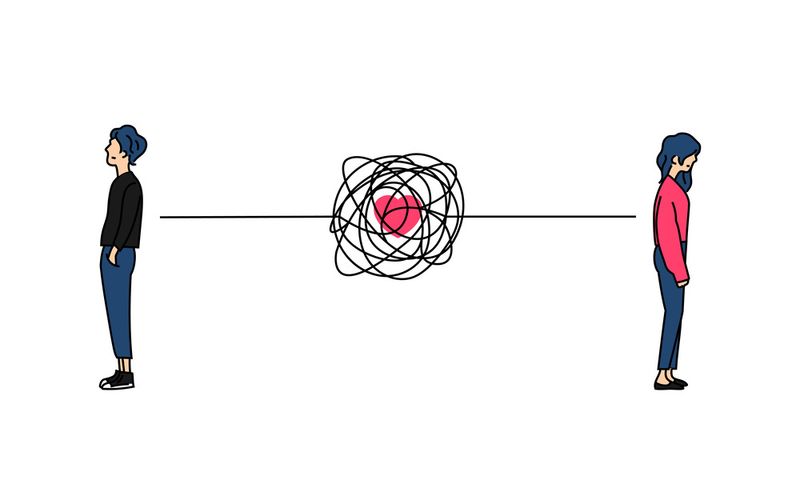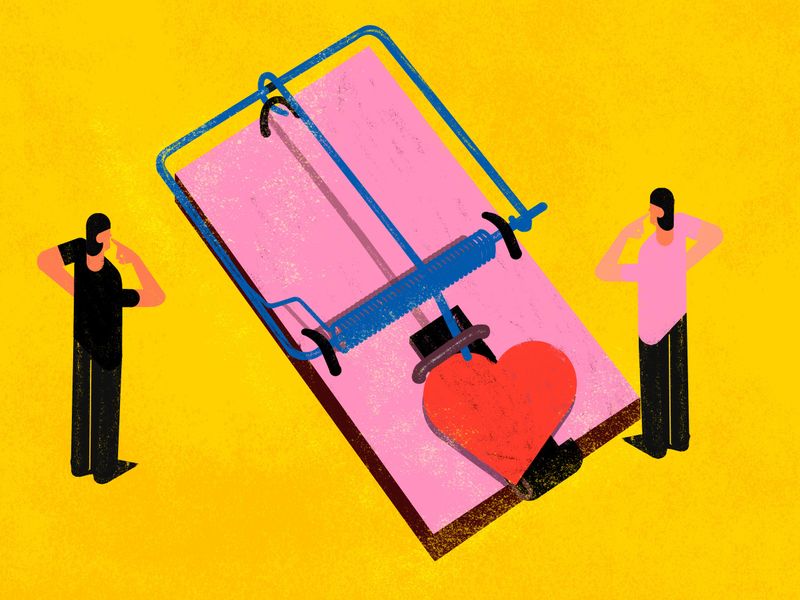When you settle for less in a relationship, the consequences can quietly erode your sense of self. This blog post explores 19 subtle yet significant changes that occur when you compromise on your own happiness and standards.
1. You Start Questioning Your Own Worth
It starts subtly; a lingering thought here, a passing doubt there. You begin to question your own value. When you settle, it often feels like an acceptance of less than you deserve. This insecurity seeps into your daily life, affecting your confidence and self-esteem.
Every compromise chips away at the belief in your worthiness for genuine love and respect. You find yourself wondering if this is all you can hope for, if this is the best you can get. Suddenly, moments that should be about joy and connection become opportunities for self-doubt. It’s not just about the relationship; it’s a reflection of how you perceive yourself.
2. You Keep Shrinking Yourself to Avoid Conflict
Conflict is a natural part of any relationship, but when you settle, you might avoid it at all costs. You begin to shrink yourself, suppressing opinions and desires to maintain peace. This constant self-silencing can make you feel invisible, as if your presence isn’t significant enough to stir the waters. Over time, you may lose sight of your own needs and wants.
The fear of confrontation overrides the need for open communication, leading to bottled-up emotions and unresolved issues. This avoidance doesn’t just create temporary peace; it creates a long-term disconnect.
3. You Feel Lonely—Even When You’re Together
Loneliness in a relationship is a unique kind of solitude. Despite being physically together, you feel miles apart emotionally. The disconnect stems from settling for a connection that doesn’t nourish your soul. Shared spaces no longer imply shared lives or dreams.
This emotional gap widens over time, leaving you to wonder if companionship is all it’s cracked up to be. The irony is, you’re not truly alone, yet the isolation feels palpable, echoing in the silence of unmet needs and unspoken words.
4. Your Standards Quietly Disappear
Over time, you find your standards quietly slipping away. What once seemed essential in a partner fades into the background as you make excuses for the present reality.
The compromise becomes the new normal, and before long, you forget what you were originally looking for. It’s like waking up one day and realizing your checklist of non-negotiables is now a blank page.
This gradual erosion of standards can leave you feeling lost, wondering how you ended up here and why you allowed it to happen. Standards are a reflection of self-respect, and their disappearance can be confusing.
5. You Stop Dreaming About the Future
Dreaming about the future is a natural part of a thriving relationship. When you settle, those dreams start to fade. You might find yourself avoiding conversations about future plans because the thought of spending a lifetime in a compromised relationship feels daunting.
The excitement of planning ahead diminishes, replaced by a sense of resignation. This lack of vision not only impacts your relationship but also your personal growth, as dreams and ambitions become stagnant.
6. You Say “It’s Fine” When It’s Not
Saying “it’s fine” can become a reflex, even when it’s far from the truth. Instead of voicing concerns or discomforts, you brush them aside with these two little words .This habit can stifle your ability to honestly express emotions, creating a façade that everything is okay.
The truth is, it’s a band-aid solution to deeper issues. The more you say it, the more you start believing it, even when your heart tells a different story. Over time, this can lead to a disconnect between your true feelings and the reality you present to others.
7. You Carry the Emotional Weight Alone
Relationships should be a shared journey, but settling can leave you carrying the emotional burdens alone. You find yourself managing both your emotions and your partner’s, without the support you need in return. This imbalance is exhausting and unfair.
The weight of unshared troubles can become too much to bear, leading to resentment and fatigue. Emotional support should be mutual, not a one-sided effort.
8. You Feel Unseen and Unheard
Being unseen and unheard in a relationship can feel like you’re fading into the background. Your thoughts, feelings, and desires seem to go unnoticed, leaving you questioning your significance. This experience can be particularly isolating, as it erodes your sense of connection and belonging.
You may start to feel like a shadow in your own life, present but not truly engaged. Feeling unseen isn’t just about being ignored; it’s about being overlooked in moments that matter.
9. You Stay Busy to Avoid Facing the Truth
Busyness can be a convenient distraction from the uncomfortable truths of settling. By filling your time with endless tasks, you avoid reflecting on the reality of your relationship. This constant hustle masks the dissatisfaction, allowing you to sidestep difficult conversations and realizations.
However, staying busy is only a temporary fix. Eventually, the truth catches up, and you’re left to face the very issues you’ve been running from, often when it’s least convenient.
10. You Get Used to Disappointment
Disappointment becomes a familiar companion when you settle. You learn to expect letdowns, adapting to a cycle of unmet expectations. This pattern can numb your emotional responses, causing you to lower your expectations further to avoid feeling hurt.
Over time, you might convince yourself that disappointment is just a part of life, when in reality, it’s a sign of deeper issues within the relationship that need addressing.
11. You Make Excuses You Don’t Even Believe
Excuses become second nature when you’re settling. You find yourself explaining away behavior or situations that don’t align with your values. These justifications often feel hollow, a narrative you’re not quite convinced of yourself. The more you repeat them, the more you’re complicit in maintaining a façade.
This habit can lead to internal conflict, as you grapple with the dissonance between what you say and what you genuinely feel.
12. You Stop Asking for What You Need
In a settled relationship, you might stop voicing your needs altogether. The fear of rejection or misunderstanding can silence your voice. Over time, this leads to unmet needs and growing dissatisfaction. You’ve learned to cope by expecting less, convincing yourself it’s easier to remain quiet.
This silence doesn’t just affect your relationship; it impacts your overall well-being, as unexpressed needs remain unfulfilled.
13. You Settle in Other Areas of Life Too
Settling in a relationship often spills over into other areas of life. You might find yourself compromising on career goals, personal ambitions, or even friendships. The acceptance of less becomes a pervasive mindset, influencing decisions beyond the relationship.
This can lead to a sense of stagnation, where life feels like it’s on pause. The cumulative effect can be a life that reflects settling, rather than striving for what truly fulfills you.
14. Your Friends Notice—And You Defend It
Friends often notice changes before you do. They might express concern, seeing the compromises you’ve made. In response, you might find yourself defending the relationship, dismissing their observations with justifications.
This defense mechanism can strain friendships, as you align more with maintaining the relationship narrative than acknowledging external perspectives. It’s a tough balance between loyalty and truth.
15. You Confuse Comfort With Love
Comfort is easy to mistake for love. In a settled relationship, safety and familiarity can be confused with genuine affection. This confusion may keep you in a situation that lacks true connection. The warmth of comfort becomes a barrier to recognizing the absence of deeper emotional bonds.
Real love should challenge and inspire, not just cocoon you in routine and predictability. It’s important to differentiate between comfort and a fulfilling relationship.
16. You Feel Drained, Not Supported
A relationship should be a source of support and energy. When you settle, it often feels like the opposite. Instead of feeling uplifted, you find yourself drained by the emotional toll of maintaining a relationship that doesn’t nurture you.
The imbalance in emotional exchange leaves you depleted, questioning why you feel more exhausted than empowered by your partnership.
17. You Doubt You’ll Find Better
Doubt can creep in, convincing you that this is the best you can have. When you settle, the fear of not finding something better is pervasive. This mindset traps you in a cycle of mediocrity, where the possibility of true happiness feels out of reach.
You might find yourself rationalizing the status quo, ignoring the inner voice that tells you there’s more to love and life than settling.
18. You Let Red Flags Slide
Red flags are often easier to ignore when you’re settling. They become background noise, easy to dismiss in the pursuit of maintaining peace. These warning signs may initially seem minor, but over time, they indicate deeper issues that can’t be overlooked.
Letting red flags slide compromises your values and boundaries, creating a shaky foundation for the relationship.
19. You Start Losing Respect for Yourself
Respect is fundamental to self-worth. Settling in a relationship can erode this vital sense of respect. As compromises accumulate, you might find it harder to respect your own decisions and boundaries.
This loss of respect isn’t just about the relationship; it’s a reflection of how you view yourself, influencing your interactions and choices across all areas of life.








